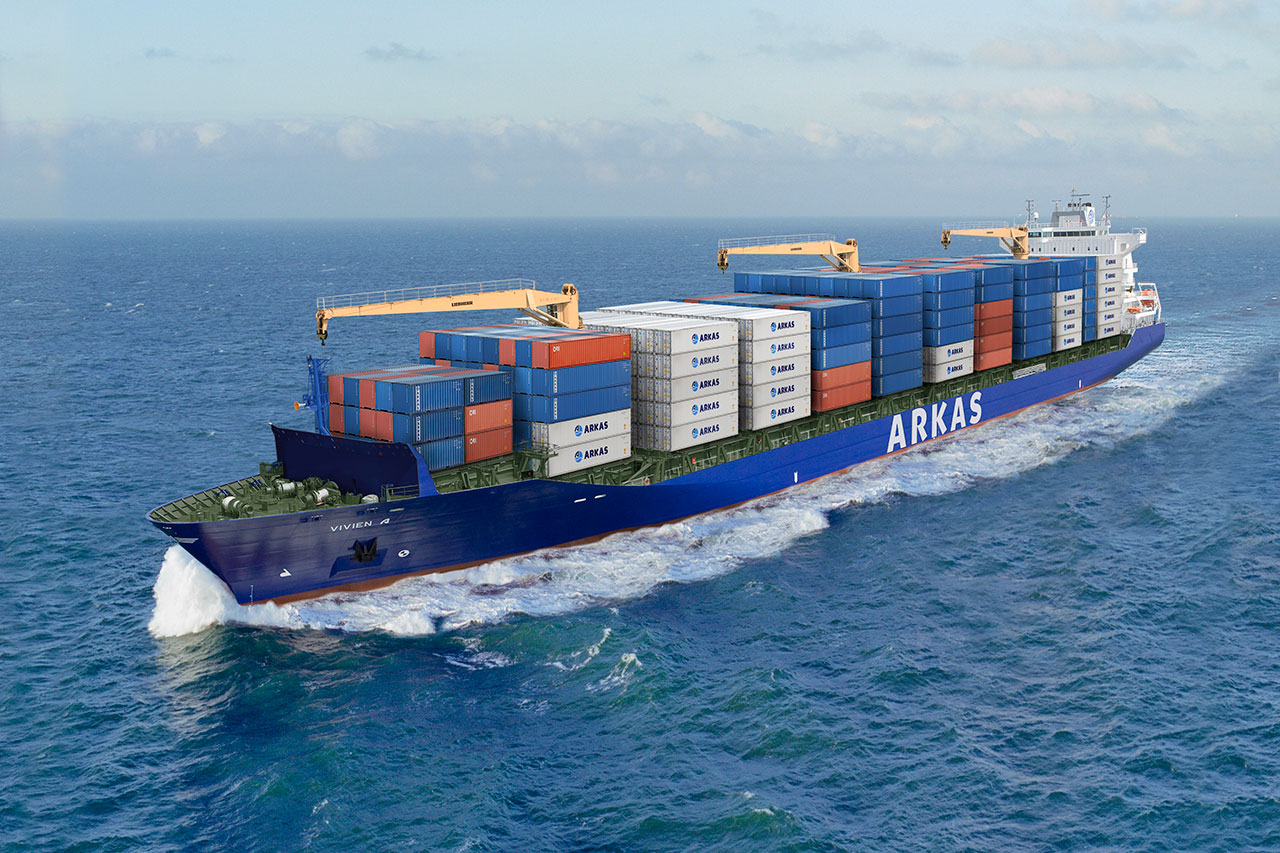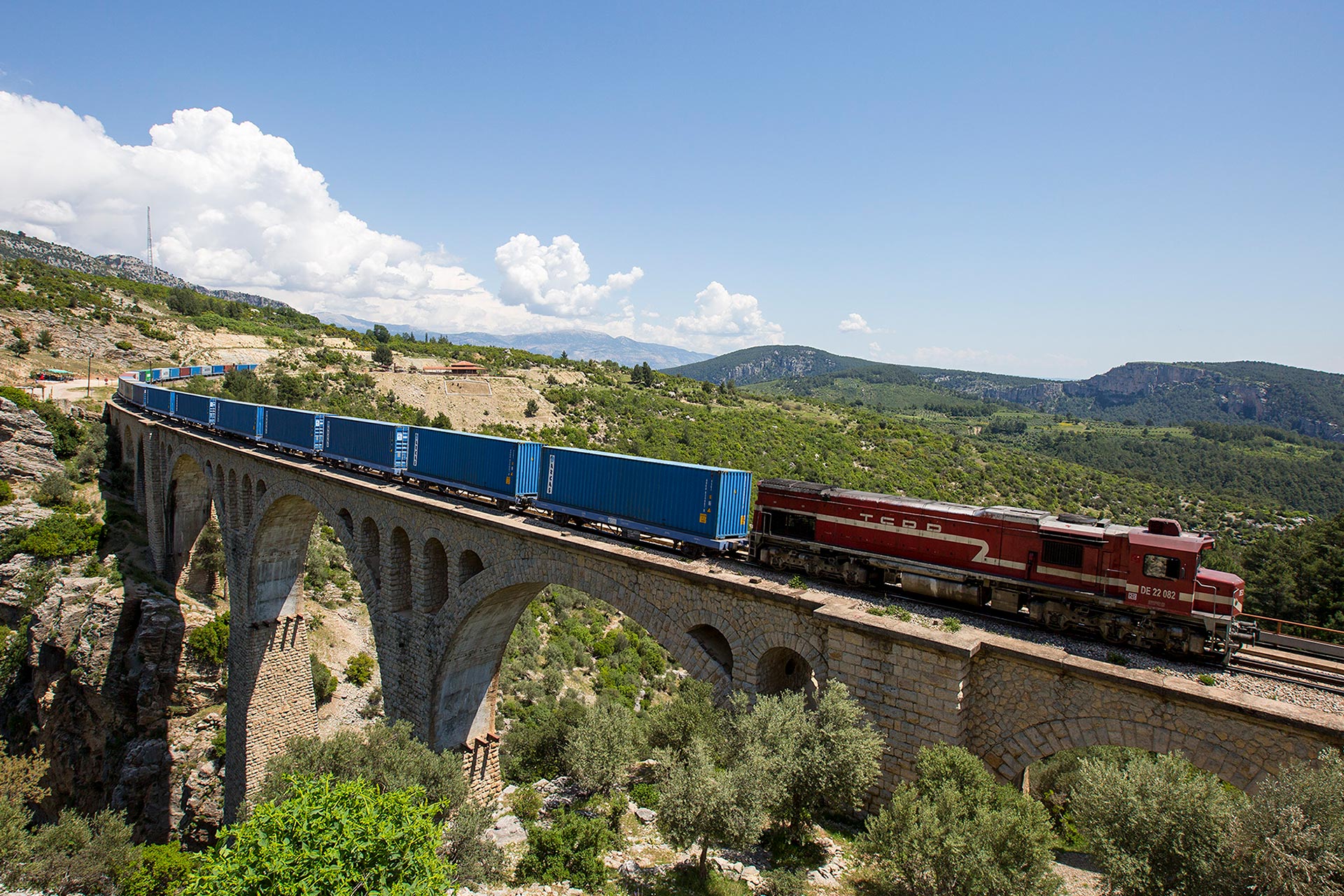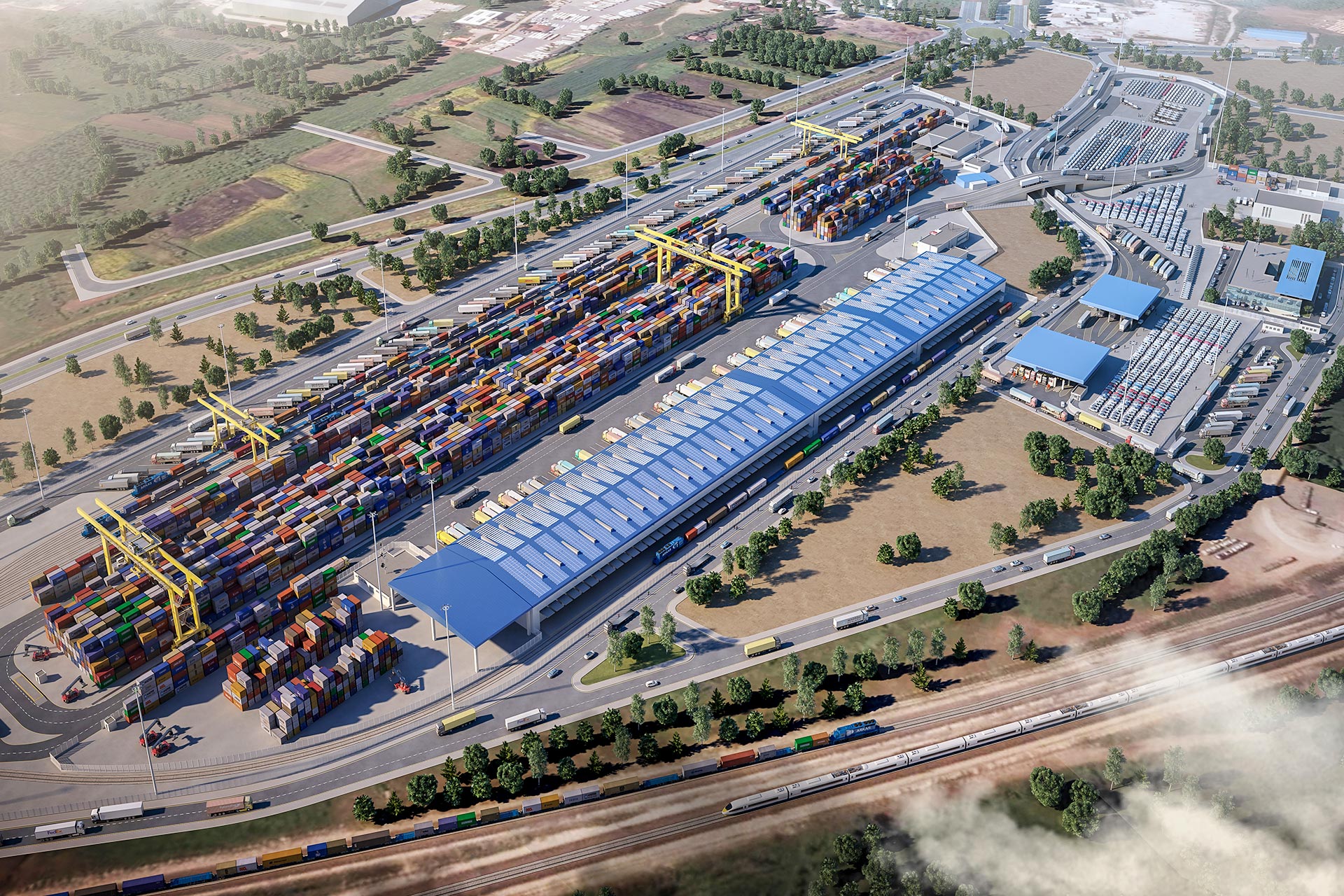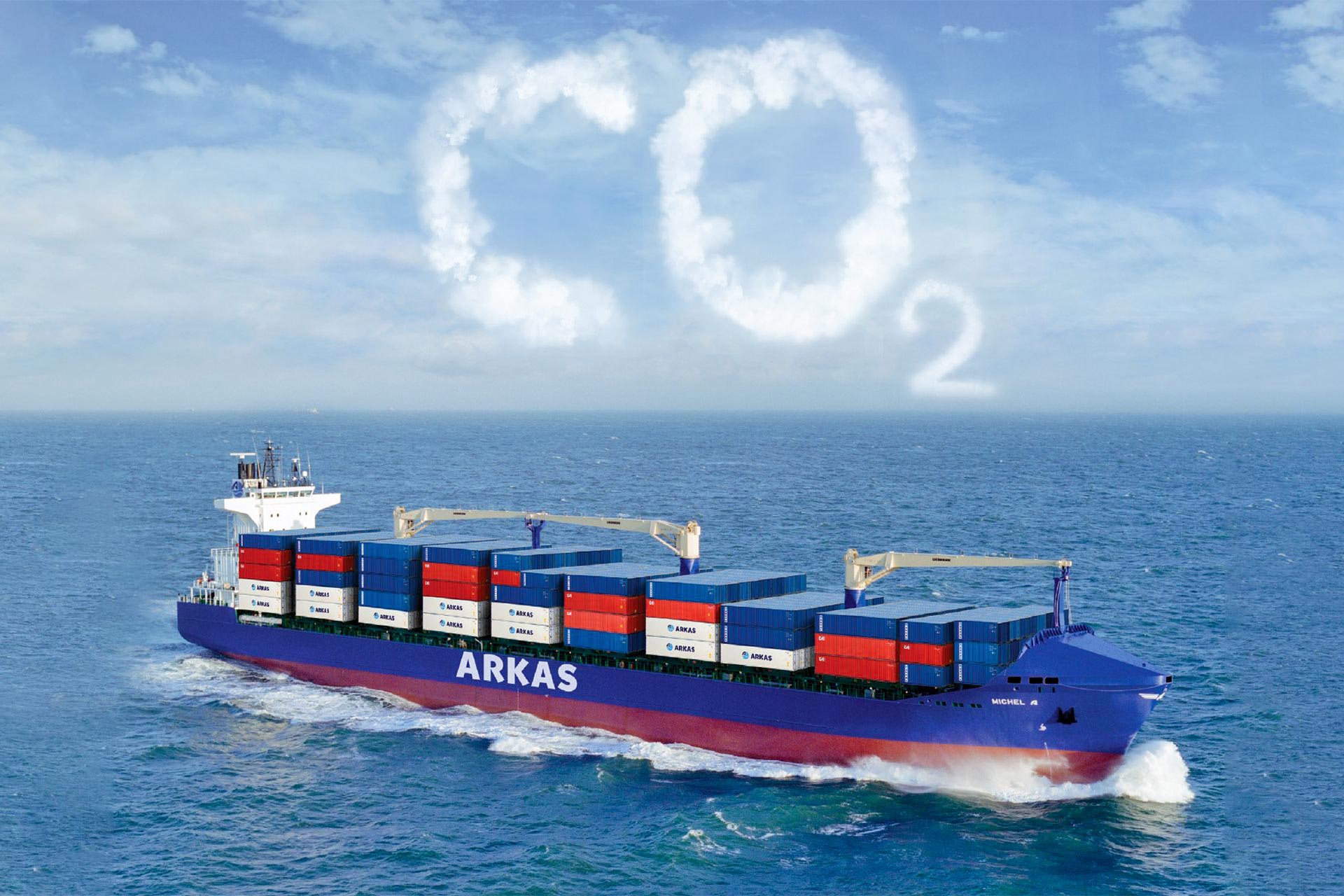Climate change, sustainable development and environmental responsibility require supply chain businesses to turn towards green logistics practices. The concept of green logistics, which includes all practices carried out to reduce the ecological impact of logistics activities, is comprised of processes the components of the supply chain follow to eliminate the negative impact they have on the environment. As they work to ensure the rapid green transformation of their business processes, logistics companies also focus on investments in this field in order to save fuel and reduce greenhouse gas emissions. Arkas implements sustainable environmental strategies in its main lines of business, such as shipping, logistics, port and terminal operations.
Paying attention to environmental factors and protecting the environment is one of the most important issues for society in today’s world. The increase in greenhouse gases and climate change as a consequence of global warming are both causes of concern around the world. Therefore, as various industries gravitate towards environmentalist approaches, they also strive to set up their policies in accordance with international declarations. In an environment that is increasingly competitive due to the impact of globalisation, the surge in consumer expectations and demands, the decrease in profitability and costs, and the rise in legal environmental obligations induce businesses to focus on green practices.

Logistics operations are of the utmost importance in all industries and stages of production. Logistics ranks high in the world economy in terms of both its dynamism and the opportunity it provides to create a competitive advantage compared to other industries. The concept of green logistics, which represents the environmental inclination after gaining prominence in terms of sustainability, signifies the environmentalist change in the industry. Green logistics does not only represent an approach adopted by companies belonging to the industry and regarding which policies are produced. The measures taken by all companies engaged in international trade towards eliminating the negative impact their supply chains have on the environment are also part of green logistics.
In transportation, the stage of logistics with the highest carbon emissions, the trend towards modes that allow for more freight to be transported at a single run is increasing. According to research, road transport accounts for the majority of greenhouse gas emissions among all transport modes, and it is responsible for almost 72% of the total greenhouse gas emissions from transport. In the European Union, the share of maritime transport is 13.3, the share of air transport is 13.9 and the share of railroad transport is 0.5%. Consequently, there is an increasing trend in maritime transport and railroad transport. Companies operating in the logistics sector, make investments by developing certain practices to minimize the damage suffered by the environment as a result of their activities. Efforts to reduce carbon emissions in the transportation process are of particularly great importance in the green transformation process.
Goal of 25% reduction in carbon dioxide emissions
Arkas Line, a subsidiary of Arkas, is the first member of CCWG (Clean Cargo Working Group) to join from Turkey. With the outlook adopted as a part of this membership, the company re-examines its ongoing operations and develops new projects to reduce fuel consumption and, accordingly, carbon – sulphur emissions. Since 2017, Arkas Line has been an active member of EcoVadis, the world’s most trusted rating agency for sustainability in global supply chains. Following a CSR (Corporate Social Responsibility) rating on four aspects, namely Environment, Workers’ Rights, Ethics and Sustainability, and 21 sub-criteria, the company was awarded a silver medal. The Energy Efficiency Regulations, which went into effect in 2013, were the root of the “Vessel Energy Efficiency Management Plan” for the Arkas marine fleet. Arkas aims to reduce carbon dioxide emissions by 25% with changes carried out in all operations, from low sulphur fuel to speed optimisation, from switching to fuel-efficient vessels and appropriate route selection.

Arkas Logistics
While increasing its investments in technological infrastructure with its contactless operation motto, Arkas Logistics also attracts attention with groundbreaking projects. Various modes of transportation used to reduce costs for the customer, also prove to be beneficial in terms of protecting the environment and reducing environmental pollution. Waste management is meticulously carried out in all warehouses, transportation garages and offices within the scope of ISO 14001 Environmental Management System and local legislation. The processes of collecting waste separately and handing it over to authorized disposal companies with proper records are carefully monitored. Waste oils, which are particularly harmful to the environment, are delivered to PETDER, and end-of-life tires to LASDER. None of them is left in nature or an area that cannot be controlled. Hazardous Waste Areas established at operation sites constitute an important step in the disposal process of hazardous wastes in accordance with the legislation. Environmental targets are reviewed every month and reviewed at the end of each year. Operations are carefully carried out in line with the targets set in many areas, from reducing fuel consumption of tow trucks to minimizing paper consumption.

Railroad and maritime transport are environmentally friendly by nature. Arkas Logistics uses all modes of transport, including maritime, railroad and road transports, most efficiently on a suitable project basis. Waste management is meticulously carried out in all warehouses, transportation garages and offices within the scope of ISO 14001 Environmental Management System and local legislation. The processes of collecting waste separately and handing it over to authorized disposal companies with proper records are carefully monitored. Waste oils, which are particularly harmful to the environment and end-of-life tires are delivered to relevant companies. None of them is left in nature or an area that cannot be controlled. “Hazardous Waste Areas” established at operation sites constitute an important step in the disposal process of hazardous wastes in accordance with the legislation. Environmental targets are reviewed every month and reviewed at the end of each year. Operations are carefully carried out in line with the targets set in many areas, from reducing fuel consumption of tow trucks to minimizing paper consumption. Arkas Logistics keeps its fleet of vehicles within a certain age range and opts for fuel-efficient alternatives, focuses on railway investments as well. With 700 railcars in its fleet, Arkas Logistics transports on rail import and export trade containers from Turkey’s leading industrial cities to ports. Additionally, it generates logistics solutions in areas such as container transportation, domestic distribution and storage with approximately 500 trucks organized for road transport and through branches spread throughout the country.
A European Award for Railport
Railport, which Arkas is building in Kocaeli in partnership with Duisport, stands out in terms of integration and sustainability of transport modes. The project has been awarded a bronze medal in the “Environmental and Social Best Practice” category from the European Bank for Reconstruction and Development (EBRD), for its prospective contributions to environmentally friendly transportation and economy thanks to its railroad connection.
In Marport, where environmentally friendly approaches are adopted, projects and practices such as the use of electrical equipment in handling, the establishment of a waste facility as part of waste management, and reducing water consumption by 13% in comparison to the previous year, demonstrate Marport’s social awareness and the importance it attaches to sustainable policies.



